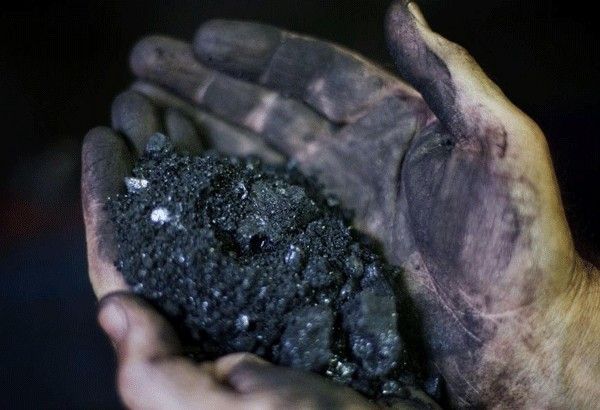Industrialization in peril sans mining progress — JFC

President Rodrigo Duterte thrust towards the industrialization of the Philippines is taking a significant hit with the continuing lack of progress in the country’s mining sector, the Joint Foreign Chambers of the Philippines said. File
MANILA, Philippines - President Duterte’s thrust towards the industrialization of the Philippines is taking a significant hit with the continuing lack of progress in the country’s mining sector, the Joint Foreign Chambers (JFC) of the Philippines said.
JFC members said the country’s mining sector remains stagnant and undeveloped, putting the country’s dream towards industrialization to a halt.
“Mining has been a sad tale of no progress over the six years of the previous administration and so far not too much progress under the present one,” Canadian Chamber of Commerce of the Philippines president Julian Payne said.
He said countries such as Australia, Canada, US and some in Europe have actually built their industrialized status through mining.
For the Philippines, which has one of the most mineralized reserves in the world, he said “it is a bit bizarre” that it is in a situation in which it has to import minerals to become an industrialized state.
“The idea that just because there are some risks in mining then you should stop all mining is frankly to the detriment of this country in terms of employment, in terms of its revenue base, and much more importantly its long term industrialization,” Payne said.
European Chamber of Commerce of the Philippines president Guenter Taus said mining is an industry that works worldwide and is something the Philippines badly needs, being the single largest supplier of iron ore in the world.
“Forward integration should be the key to success. Mine it, process it first, second, and third degree, and export the much higher value,” Taus said.
JFC, however, admitted the mining industry has had a bad reputation over the past few years and there are a lot of misunderstandings publicly about it in the country.
“Mining has had a bad reputation over the past few years because of small scale miners. Our members are some of the largest and most technologically-advanced mining companies who meet not just our home country’s standards but also international standards and we’ll be more than glad to share those experiences to the Philippines. If you have countries like Canada, Australia, and the US where mining accounts for between 15 to 20 percent of their GDP, why can’t we have that here in the Philippines?” Australia-New Zealand Chamber of Commerce Philippines Inc. executive director Benjie Garcia said.
“There is a concern, and I think we all have it, that mining should be environmentally sustainable. It’s an issue in every country where there is mining and it is by large addressed through effective regulation and effective technology,” Payne added.
Given mining’s benefits on revenues and employment, JFC said there has to be a real serious look at how to develop the mining industry and not whether if there is a need to develop the mining industry here.
“I believe that the Department of Environment and Natural Resources (DENR) is beginning to address that now. We hope it is addressed in a comprehensive way and look at the opportunities that mining presents, not just the risks,” Payne said.
In April this year, former DENR Secretary Regina Lopez issued Administrative Order No. 2017-10 banning all prospective open pit mines in the country.
A technical working group of inter-agency Mining Industry Coordinating Council is set to conduct by September a study on whether to allow or not open pit mining.
- Latest
- Trending


























